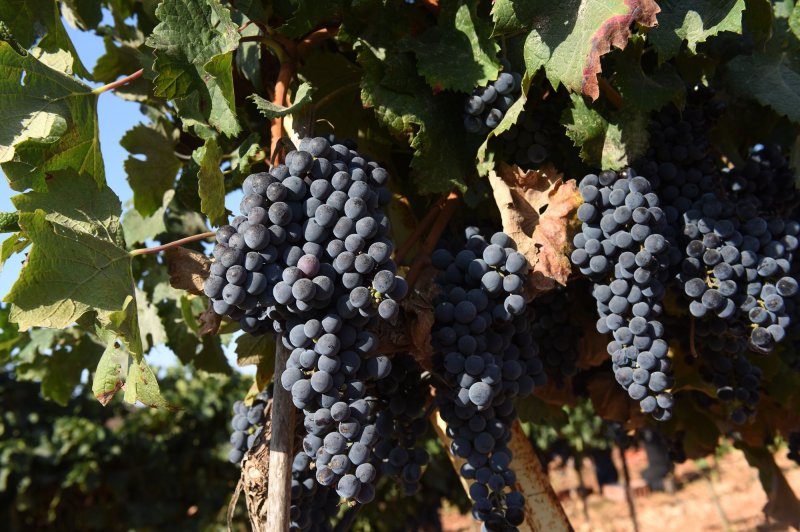As the climate warms, scientists say winemakers need to start experimenting with new varieties. Photo by Debbie Hill/UPI |
License Photo
Jan. 2 (UPI) -- Global warming is likely to force many winemakers and winegrowers to cultivate new grape varieties, according to a new study.
Unfortunately, many wine producers are reluctant to change. To help vineyards adapt, scientists say more work needs to be done to understand the diversity of wine grapes and their ability to thrive in different climes.
"What we're interested in talking about is how much more diversity of grape varieties do we have, and could we potentially be using that diversity to adapt to climate change," Elizabeth Wolkovich, a researcher at Harvard University, said in a news release.
The quality and productivity of famous wine regions is often credited to the concept of terroir, which describes a region's soil and the grape varieties that thrive there. Quality wine is the result of a happy marriage among climate, soil and grape varieties cultivated over centuries.
Such a conception is naturally resistant to change.
"If you acknowledge in any way that you have climate change, you acknowledge that your terroir is changing," Wolkovich said. "So in many of those regions there is not much of an appetite to talk about changing varieties."
Even if there was a will to adapt, the latest research -- published this week in the journal Nature -- suggests there is not enough knowledge to facilitate change.
"Right now we know we have this diversity, but we have little information on how to use it. One of our other suggestions is for growers to start setting aside parts of vineyards to grow some other varieties to see which ones are working," said Ignacio Morales-Castilla, a research fellow at Harvard's Arnold Arboretum.
According to the study, Europe is especially blessed with a diversity of wine grapes, but labeling laws make it hard for winegrowers to experiment with new varieties.
In North and South America, as well as in Australia and other New World wine regions, the laws governing wine varieties and labeling are less strict or non-existent, but growers have less experience with diverse varieties. In Australia, 12 grape varieties account for 80 percent of wine production.
Warming has already begun to transform the climate of wine regions across the planet. And according to the new study, winemakers need to begin experimenting now, not later.
"With continued climate change, certain varieties in certain regions will start to fail -- that's my expectation," said Wolkovich. "The solution we're offering is how do you start thinking of varietal diversity. Maybe the grapes grown widely today were the ones that are easiest to grow and tasted the best in historical climates, but I think we're missing a lot of great grapes better suited for the future."















